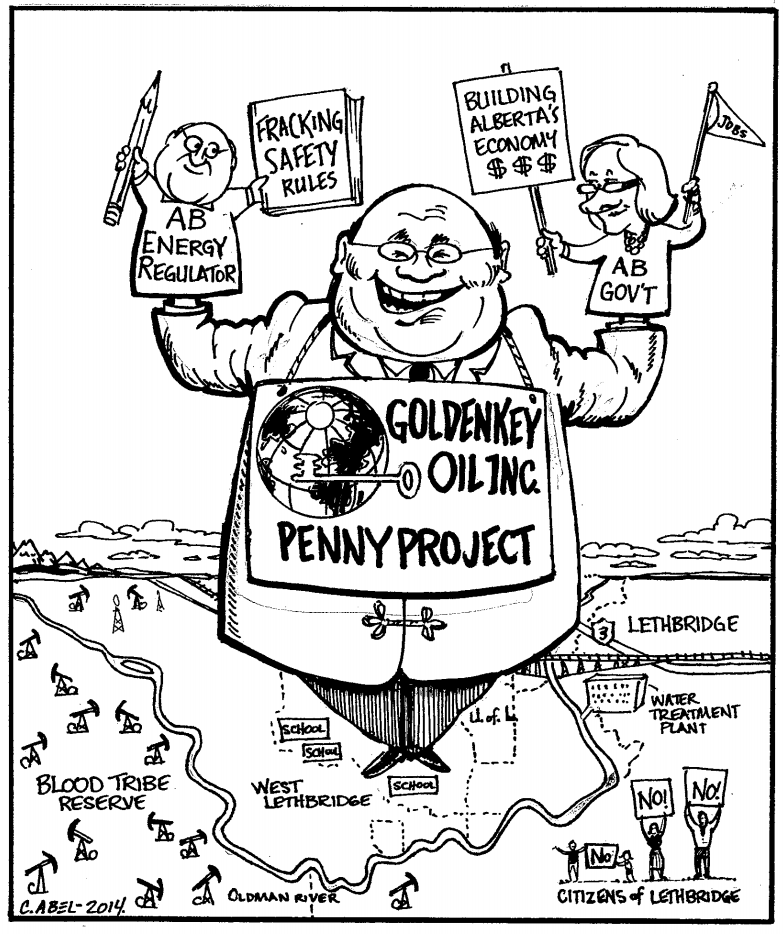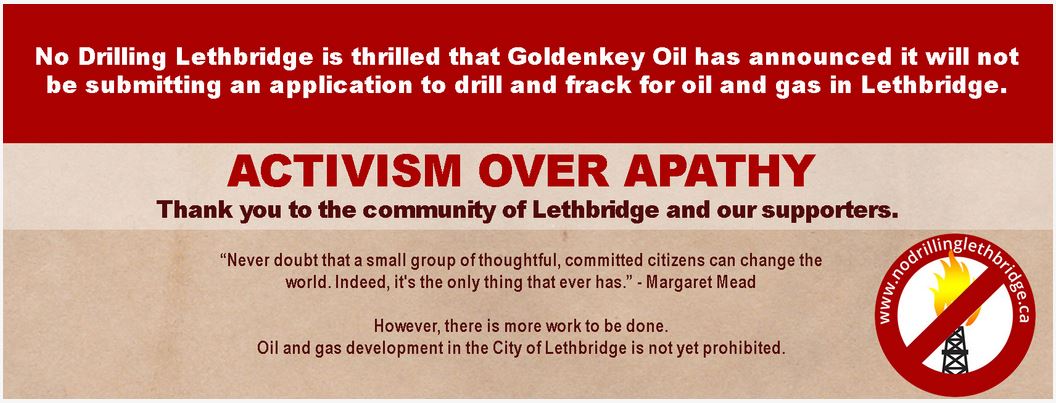Anti-fracking campaign dampens British buzz over shale by Shawn McCarthy, June 9, 2014, The Globe and Mail
The walk from the village of Balcombe to the drill site takes less than half an hour on a footpath that winds through the dense West Sussex forest, past a farmyard, and then down the overgrown verge of a rural road. It reaches the spot where a group of anti-fracking protesters encamped and police converged in a high-profile standoff last summer.
The drilling company hired by Cuadrilla Ltd. is gone now – as are the police and protesters – though the company has received a county licence to return to test the oil flow in the well that was drilled in August last year. When it does, it will be met by a determined group of villagers who remain busy appealing permits, meeting with media and engaging with the international movement that seeks to put the brakes on industry’s effort to expand North America’s shale gas/tight oil boom.
Cuadrilla is at the forefront of Britain’s effort to replicate North America’s shale gas/tight oil boom – an ambition strongly endorsed by Conservative Prime Minister David Cameron. If successful, the development of unconventional gas and oil reserves could eventually offset the declines in North Sea production and reverse Britain’s growing reliance on imports.
In his government’s Queen’s Speech that last week laid out its legislative agenda, Mr. Cameron promised measures to speed up development of unconventional oil and gas. “We want Britain to be a country that is energy independent and in control of its own future, and not reliant on foreign countries for oil and gas,” the Queen read in Parliament.
Mr. Cameron’s enthusiasm is fuelled by Britain’s potentially vast quantities of tight oil and shale gas.
The British Geological Survey last month estimated there could be 4.4 billion barrels of oil in the Weald basin, which stretches across southern England, but said it was uncertain how much of that would be recoverable. A previous BGS report estimated that central England could contain 1,329 trillion cubic feet of natural gas.
In both cases, much more work will need to be done to determine the extent of commercially recoverable reserves, but the extent of the natural gas resource, in particular, is raising hopes that Britain can join North America’s unconventional energy revolution.
To achieve that goal, the government and industry will have to face down an anti-fracking campaign that insists the environmental costs of development far outweigh the benefits.
Rosalind Merrick is an unlikely activist – a speech therapist who is raising two young children with her music-teacher husband in this charming town of stone cottages and sturdy brick townhomes, a 50-minute train ride south of London’s Victoria Station. Ms. Merrick worries about the impact that intensive drilling, fracking and oil production would have on local water sources and air quality, as well as the increased truck traffic on country roads that would accompany development.
She has joined with some 200 neighbours in a residents’ association that is determined to block further drilling by Cuadrilla and its plan to test the flow of the previous well. The Frack Free Balcombe Residents Association has a common cause with activists in Australia and North America, including aboriginal communities in New Brunswick that oppose shale gas development there.
The villagers simply don’t accept assurances from local councils, the national government and industry that the drilling can be done safely.
“To make fracking safe, it would be so expensive that they wouldn’t do it,” Ms. Merrick says. “It’s being pushed by vested interests, by politicians whose fingers are sticky with oil.”
The Royal Society and the Royal Academy of Engineers published a report two years ago that concluded the practice of hydraulic fracturing entailed clear risks, but that they could be “managed effectively.” Their conclusions were in line with similar work done in Canada and the United States: that there was little chance (but not zero) of chemically laced water migrating from deep in the earth to contaminate ground water closer to the surface; that well integrity – the proper sealing of the well casing – is “the highest priority” in preventing problems; and that “robust” regulatory and monitoring efforts are “vital” to ensure industry is meeting the highest standards.
But among the opponents in Balcombe, there is simply no trust in either industry or government regulators. [The same oo trust is in many communities in North America, including Lethbridge (Oil soaked Alberta) where the community loudly said NO! and punted Goldenkey out.] And many residents worry the government’s focus on unconventional oil and gas production will slow the shift from fossil fuels to renewable energy, a move needed to combat climate change.
In an interview at his Whitehall office prior to the Queen’s Speech, Minister of State for Energy Michael Fallon said BGS surveys indicate a large resource base. The government plans new legislation to permit oil companies to extend horizontal drilling at depth without needing the permission of owner of the surface land. “We don’t know in either case – north or south – whether the gas or oil can be extracted as easily as it’s been extracted in North America. But what we do know is that it is of such sufficient scale, we can’t afford to ignore it.” He noted that some major companies, including British giant Centrica PLC and France’s GDF Suez, are entering the shale gas business.
For its part, Cuadrilla is trying to turn down the heat in Balcombe. The planned well testing would not involve fracking, the company’s director of public affairs, Matt Lambert, said in an interview. And given the natural fractures in the oil-bearing limestone, it can eventually extract the crude using conventional techniques. “We do not need to frack [at Balcombe] and never will need to frack because it’s already been done by nature,” Mr. Lambert said. [Same promise Encana gave Rosebud; violated on hundreds of wells, including fracturing directly into the community’s drinking water aquifers]
Meanwhile, Cuadrilla has shifted its focus to gas development in Lancashire where, in a joint venture with Centrica, it is seeking permits from county council to drill and frack up to four wells – and has plans for eight – in the Bowland shale. Backed by international environmental groups such as Friends of the Earth, opponents are gearing up to battle that plan. Mr. Lambert said the company remains optimistic about development. “We think it’s a great opportunity,” he said. [Emphasis added]
[Refer also to:
May 21, 2014: Calfornia: EIA, USGS cut estimate of recoverable Monterey Shale oil by 96%


